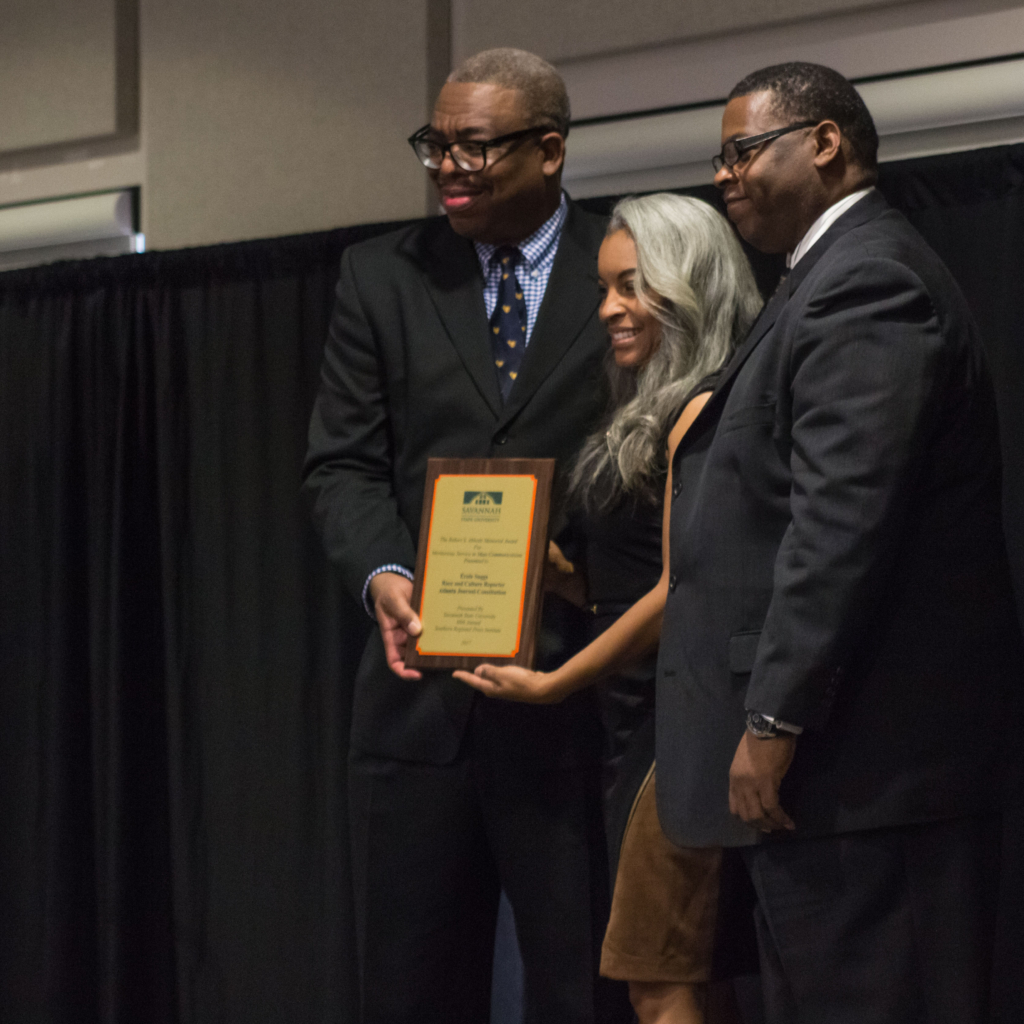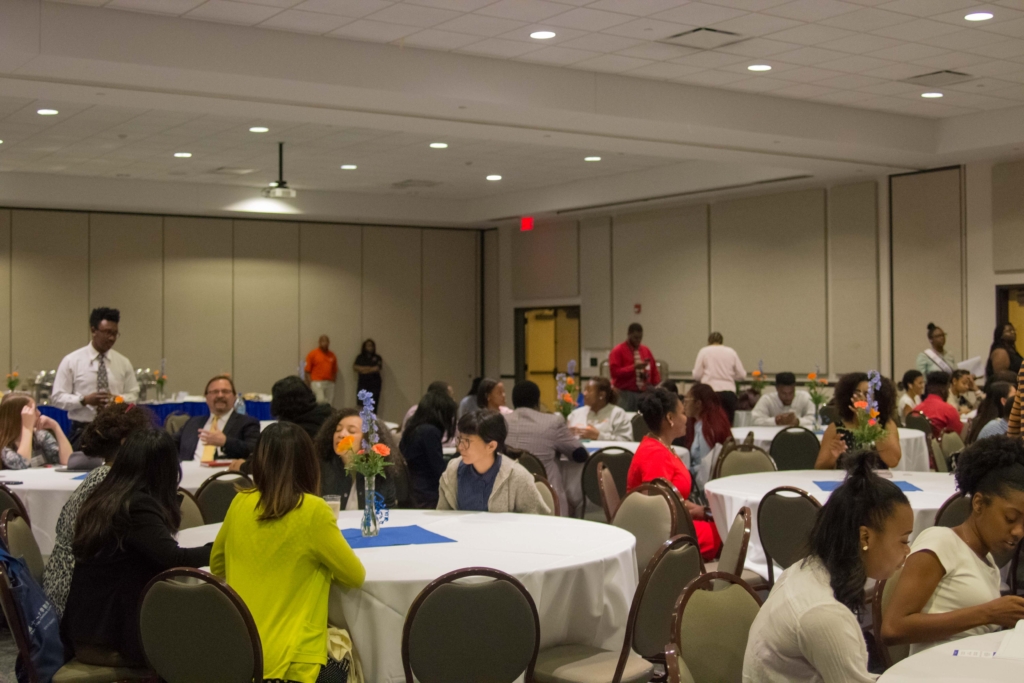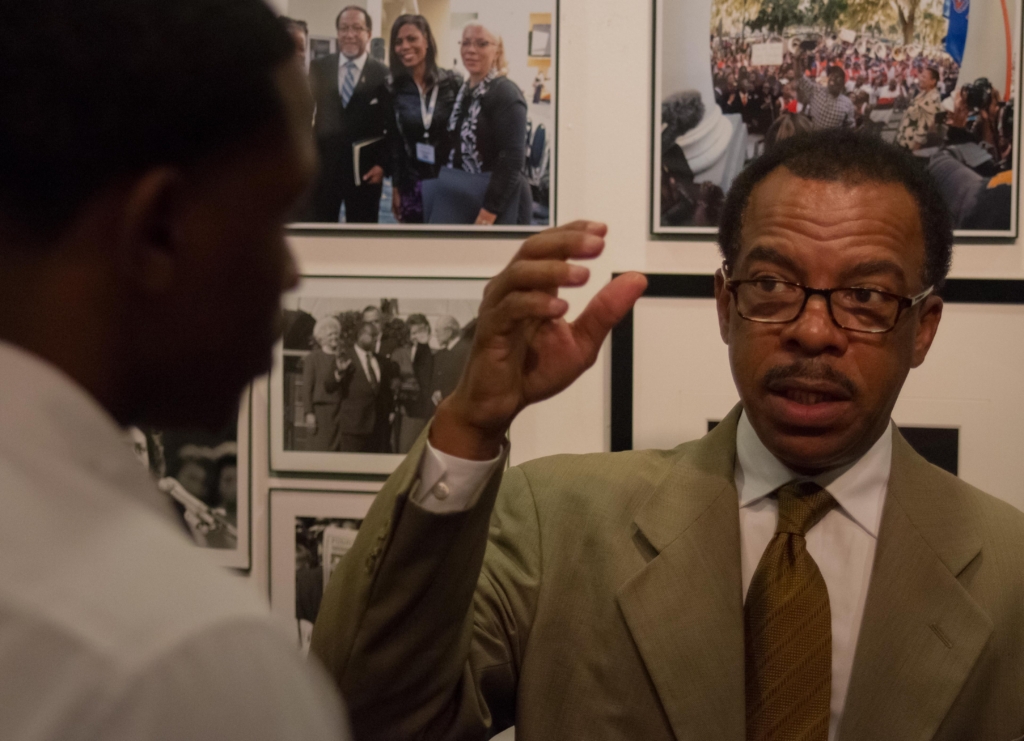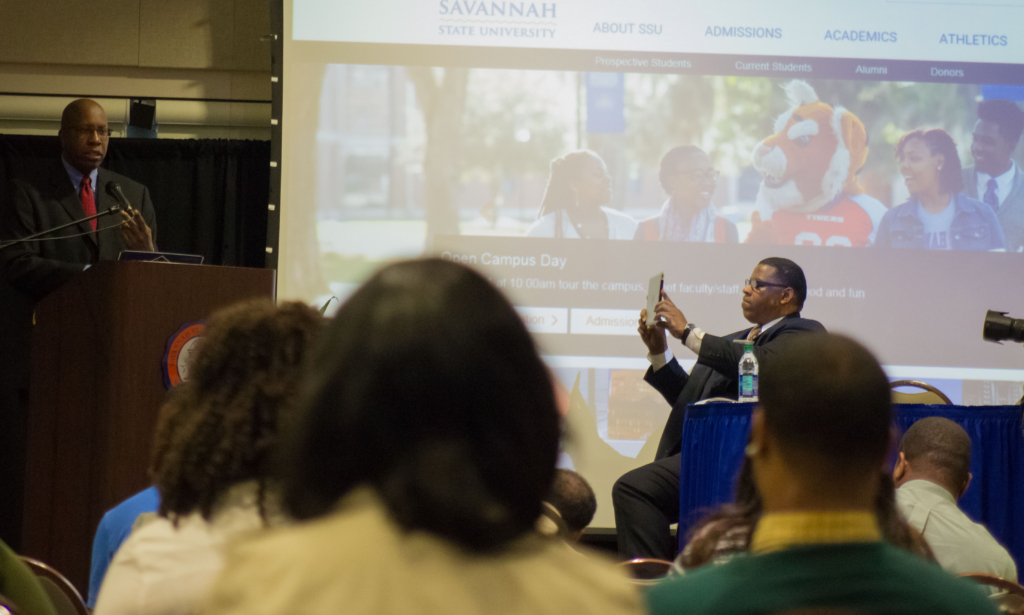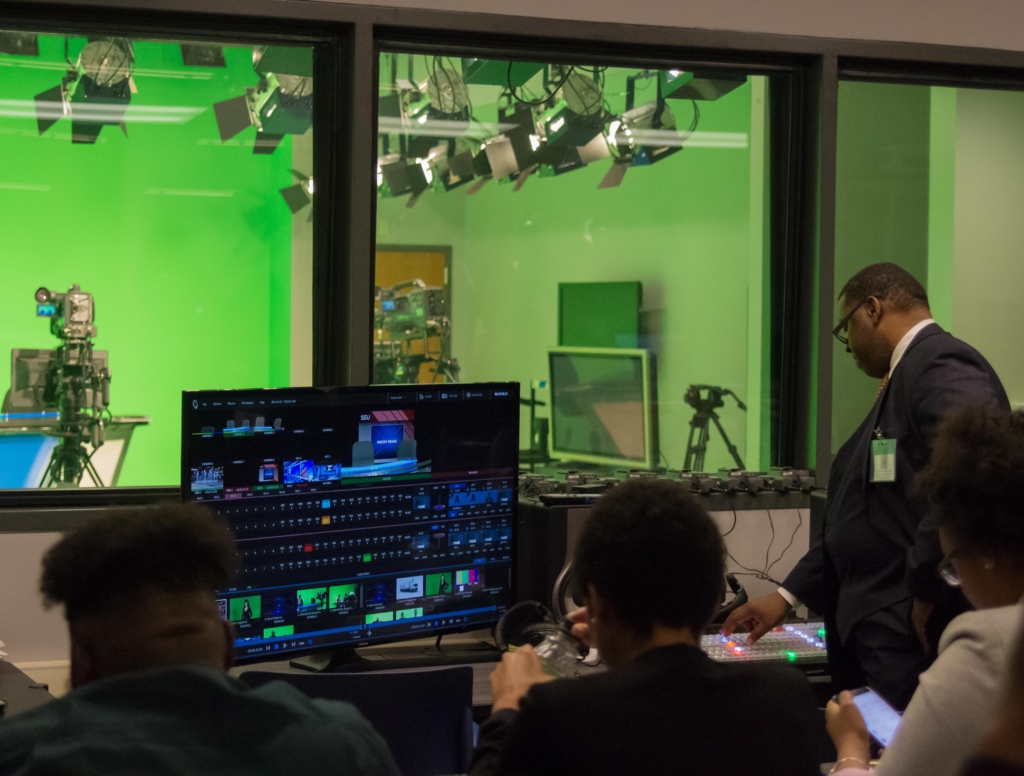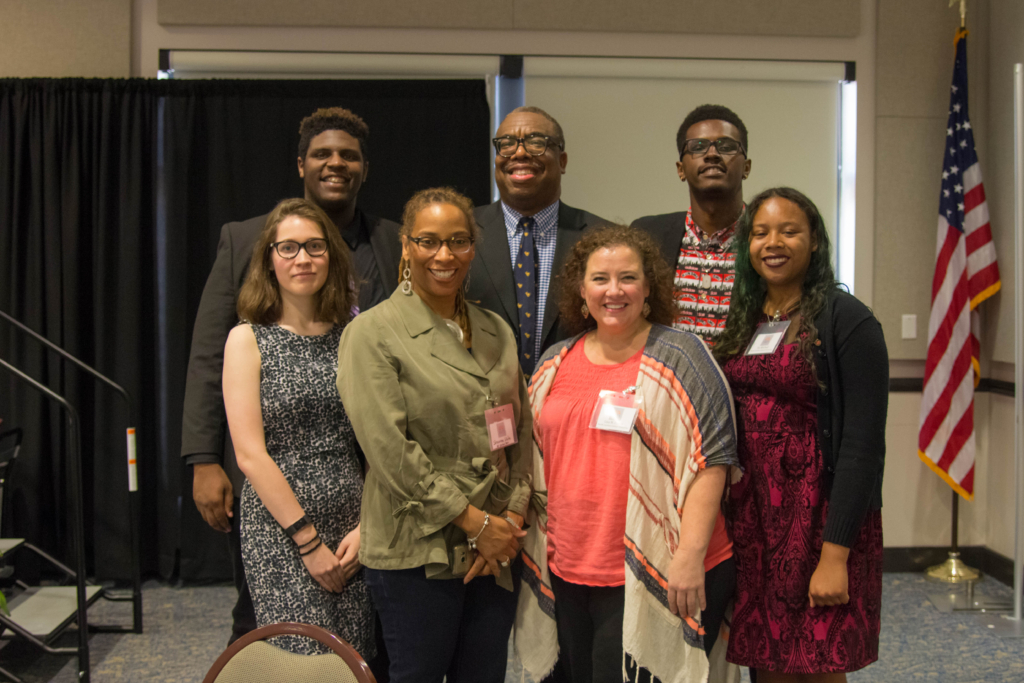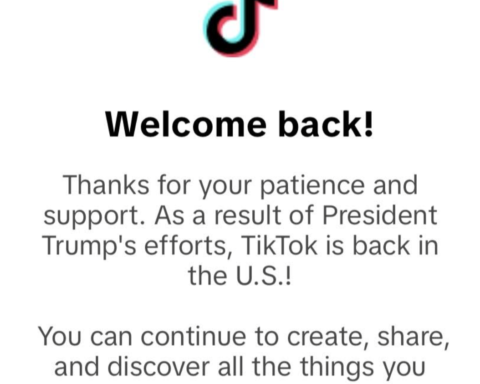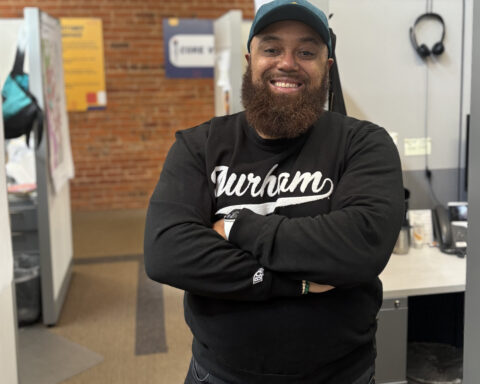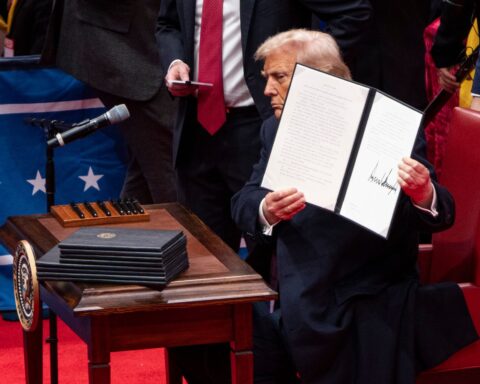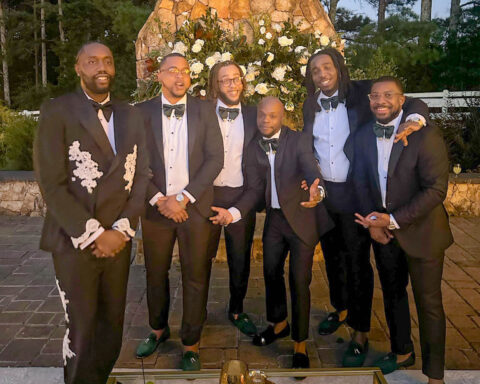At the 66th Southern Regional Press Institute conference, Savannah State University invited several media professionals to encourage aspiring journalists.
Among the veteran journalists in the audience was N.C. Central University alumnus Ernie Suggs, who received the Robert S. Abbot Memorial Award for “meritorious service in mass communications” at the Miiledge-Owens Awards Luncheon, Feb. 24.
The Southern Regional Press Institute conference, hosted by Savannah State, focuses on helping students and young professionals grow their skills in media production.
The conference hosts a job fair and workshops with professors from across the Southeast region. Some of the workshops this year included screenwriting tips, photography lessons, videography tips, how to cover controversy on college campuses, and how to deal with crisis coverage in media. The awards ceremony honoring Suggs came at the end of the conference.
Suggs has an extensive list of experience in journalism. During his time at NCCU, he served as the sports editor of the Campus Echo his freshman and sophomore year before serving as editor-in-chief for two years.
Suggs’ work with the Echo didn’t go unnoticed. Through the National Association of Black Journalists, he landed a job as a sportswriter for Garnett Westchester Newspapers in White Plains, N.Y.
Over the years, his success has led him to the staff of the “Atlanta Journal-Constitution,” where he has been a race and culture reporter for more than 20 years.
Suggs was also the former vice president of the National Association of Black Journalists and in 2008, was chosen for the Nieman Fellowship at Harvard University.
“When I received this invitation to speak today, I was really honored and thrilled because I sat in these seats 25 years ago as a college student at North Carolina Central University,” said Suggs. “Particularly as a young journalist, eager to graduate but terrified too at the prospects of the future.”
As he scanned the room, full of students from elementary schools to colleges, Suggs started to feel the pressure, he said.
“What I am supposed to say to you all? Am I supposed to be motivational and inspiring? I want to be inspiring, but in these strange days of ‘fake news,’ alternative facts, and vicious attacks on the media, it’s hard to be that, but I’ll try,” he promised the audience.
The Robert S. Abbot Award was named after the founder, editor, and publisher of the Chicago Defender, one of the first black-owned news publications founded May 5, 1905. Before the Defender, Abbot practiced law in the courts of Chicago and Gary, IN. To him, the newly founded publication was to be a voice for the black community.
“Mr. Abbot was a fighter and a defender of rights. It is his example that I, as a journalist, try to live up to,” Suggs said. “I’m deeply humbled to receive this award. I’m not sure that I fully deserve it, but I will gladly take it home.”
In the middle of his speech, he mentioned a brief conversation he had with Savannah State associate professor Novella Cross-Holmes.
Suggs remembered asking her what she wanted him to talk about at the luncheon. According to Suggs, Cross-Holmes laughed at his question and asked if Suggs had been watching what’s was going on in the world.
It was that conversation that shifted Suggs’ focus to the conference’s theme this year: “Crisis Communication: Ethics and Accuracy in a Digital World.”
Following that theme, Suggs elaborated on the upcoming challenges aspiring young journalists will face with President Trump, whose public disdain for the media has been a topic of discussion thanks to a recent tweet referring to the media as “the enemy of the American people.”
“So here we are,” he said. “Here, we have a bunch of college students interested in becoming professional journalists. They’re entering into a profession that’s being called by the President of the United States and his administration, dishonest, disgusting, fake, and the enemy. So how do we handle this? The answer is simple; we just fight back.”
And with fighting to defend the freedom of press, he told the audience a story about how in 1971, NCCU’s Campus Echo Newspaper sued a past chancellor, Albert T. Whiting, in court after he snatched its funding away because he disagreed with “the militant tone” taken by the newspaper, editorially.
At first, the court ruled in favor of Chancellor Whiting and the university. However, in 1973, the 4th Circuit U.S. Court of Appeals overturned the lower court’s ruling in a 3-in-1 ruling, which stated Chancellor Whiting and the university withdrawing funding from the Campus Echo violated the First Amendment and abridged the newspaper’s freedom of press. After two years, Campus Echo was able to operate and print stories, once again.
Before closing his speech, Suggs left the audience with advice about dealing with adversity in an ever-changing world.
“You can position yourself to not only survive in this business, but thrive,” he said. “Will news as we know it, survive? Can it thrive? The answer to both of those questions is yes. The test on the media can only make us stronger and better as we keep those of whom we cover accountable…The future of news is all of you; so don’t be discouraged; don’t give up, don’t consider abandoning journalism because a president says he’s at war with you.”

